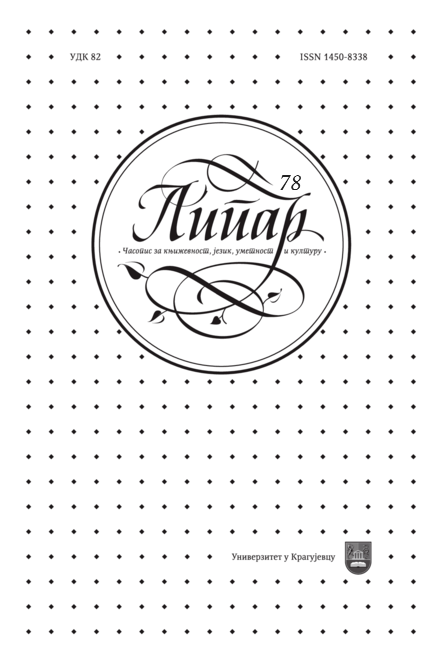ИДЕОЛОШКИ РАСПОНИ САВРЕМЕНИХ ПРИЧА О КОСОВУ
IDEOLOGICAL RANGES OF CONTEMPORARY STORIES ABOUT KOSOVO
Author(s): Aleksandra D. MatićSubject(s): History, Anthropology, Language and Literature Studies, Studies of Literature, Sociology, Ethnohistory, Local History / Microhistory, Social history, Middle Ages, Serbian Literature, Cultural Anthropology / Ethnology, Culture and social structure , 13th to 14th Centuries, Theory of Literature, Identity of Collectives, Sociology of Literature
Published by: Универзитет у Крагујевцу
Keywords: Kosovo; ideology; myth; folklore; identity
Summary/Abstract: This paper examines the ideological ranges of contemporary stories about Kosovo, as reflections on the social, political, and cultural background in which they arise, as well as the processes of establishing or abandoning the dominant identity matrices, based on the Kosovo myth. As Kosovo is our great story, the constitutive narrative of our national being, but also of Serbian literary-historical consciousness, it proved necessary to shed light on how contemporary Serbian prose reflects this narrative, but also to elucidate the diachronic perspective, which gives ideologies a mythical or symbolic dimension. The five authors and texts I am analyzing are Branislav Janković, “Nightingale the Chicken” (Slavuj-pile), Muharem Bazdulj “From Prizren the tame place” (Iz Prizrena mjesta pitomoga), Dejan Stojiljković, “No cour- age” (Nema hrabrosti), Vesna Kapor “What would you like to remember” (Čega bi voleo da se sećaš) and Ana Radmilović “Kosovo - three hundred miracles” (Kosovo– trista čuda). Among the selected contemporary stories, a range from establishingand empowering to challenging the dominant ideological discourse on Kosovo and its mythology is noticeable. The common intention is to constitute “small” stories by referring to a “private” view of Kosovo resulting from a fragmentation of the world image, and hence deconstruction or rethinking inherited identities based on new policies and ideological constructs represented in our era, which produce internal dissonance in the text itself.
Journal: Липар - часопис за књижевност, језик, уметност и културу
- Issue Year: XXIII/2022
- Issue No: 78
- Page Range: 121-137
- Page Count: 17
- Language: Serbian

